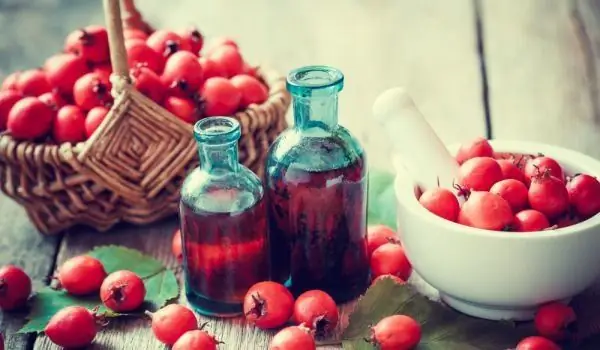2025 Author: Jasmine Walkman | [email protected]. Last modified: 2025-01-23 10:18
Coffee is one of the most widely consumed beverages in the world. Its active action is mainly due to the high content of caffeine, which is a natural stimulant. It stimulates the activity of the nervous system, makes us more alert, focused and vital.
This activity can also have negative effects. Caffeine has a vasoconstrictive effect, which can lead to an increase in blood pressure. Due to the fact that caffeine is contained in high concentrations in coffee, this drink is often associated with heart disease and high blood pressure.
Unlike many other stimulants, caffeine has a weak stimulant effect and has a short lifespan in your body. Interestingly, caffeine has a self-limiting effect - it acts on the kidneys in a way that increases its own excretion.
Caffeine consumption has been shown many times that it does not increase the risk of high blood pressure, heart disease or heart attack.
A large-scale study of more than 85,000 women over a 10-year period showed that regular coffee consumption did not lead to a higher risk of these diseases, even in women who drank more than 6 cups of coffee a day. Many hypertension committees explicitly state that coffee consumption is not associated with high blood pressure.

Some recent studies have shown a weak link between coffee consumption and high blood pressure, and the effect is short-lived.
Your blood pressure may rise immediately after drinking, and this effect is most common in people who usually have higher blood levels. In 15% of the studied people there is a drop in blood pressure after consuming caffeinated beverages.
Coffee contains polyphenols, which reduce the number of activated platelets in the blood. This reduces the chance of blood clots forming, which are risk factors for causing a heart attack.
The same polyphenols also reduce the concentration of a type of protein, an important factor in inflammation. Drinking coffee will provide you with a satisfactory amount of these substances, which are believed to reduce the risk not only of cardiovascular but also of many kidney diseases.
Recommended:
Diet For High Blood Pressure

Bad eating habits contribute significantly to increase in blood pressure . When a person is middle-aged high blood pressure is a natural part of the aging process, which in combination with an improper diet can lead to many unwanted side effects.
These Foods And Herbs Help With High Blood Pressure

Hypertension poses a risk of heart attack or stroke, and they are perhaps the most common cause of death in the world. Therefore, it is very important to keep blood pressure within normal limits. There are many ways to lower blood pressure - physical activity, weight loss, smoking cessation and more.
Nutrition In Heart Disease And High Blood Pressure

Recommended: dietary unsalted cottage cheese, unsalted cheese, fresh and yogurt up to 500 grams per day, meat - chicken, beef, beef and pork 150-200 g per day, 3-4 times a week, lean fresh fish, eggs up to 2-3 pcs. per week (egg yolk is allowed freely), more fruits, especially grapes, strawberries, apricots, peaches, pears, pumpkin, etc.
Dates Fight High Blood Pressure

Eating dates is very valuable for maintaining the health of the whole body. They are considered useful in constipation, intestinal disorders, heart problems, anemia, sexual dysfunction, some malignancies and many others. Dates are rich in vitamins, minerals and fiber, thanks to which they are considered a valuable fruit that fights high blood pressure.
Alcohol In High Blood Pressure

It is known that alcohol consumption can raise blood pressure. Drinking more than 100 milliliters of hard alcohol temporarily raises blood pressure to dangerous levels. Drinking more than two or three puppies regularly can have serious consequences.

